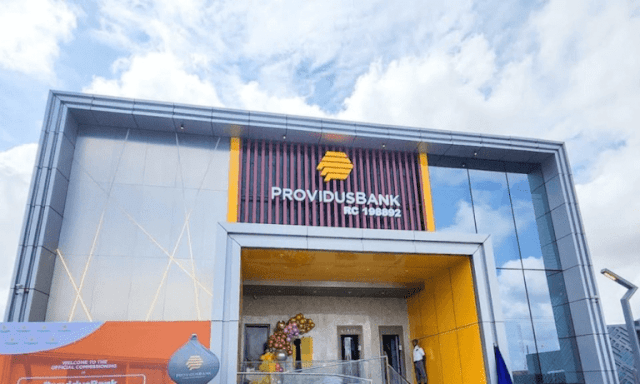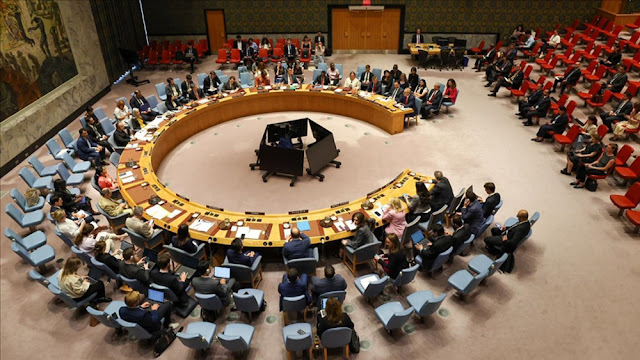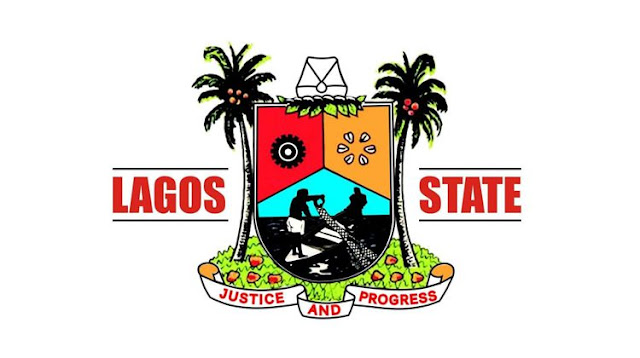In a resounding affirmation of its commitment to fostering a supportive, innovative, and inclusive workplace culture, Providus Bank has been officially named one of the Best Places to Work in Africa for 2025. This accolade, announced by the globally renowned Best Places to Work organization, highlights the Lagos-based financial institution’s exceptional efforts in prioritizing employee well-being, professional growth, and organizational excellence. As the banking sector in Nigeria and across the continent continues to evolve amid economic challenges, digital transformations, and competitive pressures, Providus Bank’s achievement stands out as a beacon of progressive human resource practices. The recognition not only boosts the bank’s reputation but also underscores the growing importance of workplace culture in attracting top talent in Africa’s burgeoning financial services industry.
The announcement came during the 2025 edition of the Best Places to Work awards, an annual program that evaluates organizations based on rigorous criteria encompassing employee satisfaction, leadership effectiveness, career development opportunities, and overall work-life balance. For Providus Bank, this honor is particularly significant as it marks the institution’s first entry into the top rankings, reflecting rapid strides made in recent years to cultivate an environment where employees thrive. According to the Best Places to Work certification process, Providus Bank achieved an impressive employee recommendation score of 84%, surpassing the regional average and demonstrating widespread enthusiasm among its workforce.
Founded in 2016, Providus Bank has quickly positioned itself as a niche player in Nigeria’s competitive banking landscape, specializing in corporate and investment banking services tailored to high-net-worth individuals, SMEs, and large corporations. With a focus on efficiency, innovation, and client-centric solutions, the bank has grown its asset base significantly, leveraging technology to streamline operations and enhance service delivery. However, what sets Providus Bank apart from its peers is not just its financial performance but its deliberate investment in people. The 2025 award recognizes this holistic approach, where employees are viewed not merely as resources but as the core drivers of the bank’s success.
The Best Places to Work program, which operates across more than 30 countries, uses a multi-faceted evaluation methodology to identify exemplary employers. This includes an extensive employee survey administered independently to gauge perceptions on various dimensions such as trust in leadership, immediate manager effectiveness, innovation, corporate social responsibility, and compensation benefits. Participating organizations must meet a minimum participation threshold of 65% of their eligible employees, ensuring the results are representative and unbiased. In Providus Bank’s case, the survey revealed high marks in areas like team collaboration and opportunities for personal development, with employees praising the bank’s agile work environment that adapts to individual needs.
One of the standout aspects of Providus Bank’s workplace culture is its emphasis on inclusivity and diversity. In a sector often criticized for gender imbalances, the bank has made concerted efforts to promote women in leadership roles, boasting a leadership team where over 40% are female. This aligns with broader African initiatives to bridge the gender gap in finance, as highlighted in recent World Bank reports on economic inclusion. Employees have noted that the bank’s diversity policies extend beyond recruitment to include mentorship programs, unconscious bias training, and flexible policies that support work-life integration, particularly for working parents. Such measures have contributed to low turnover rates and high retention of skilled professionals, a critical factor in an industry plagued by talent poaching.
Moreover, Providus Bank’s innovation-driven ethos plays a pivotal role in its appeal as an employer. The bank has invested heavily in digital transformation, adopting cutting-edge technologies like AI-powered analytics, blockchain for secure transactions, and cloud-based platforms to enhance operational efficiency. For employees, this translates to opportunities to work on groundbreaking projects that challenge conventional banking norms. Training programs, including partnerships with global tech firms and local universities, ensure that staff remain at the forefront of industry trends. The 2025 award specifically commended the bank’s “agile learning culture,” where continuous education is not an add-on but a core component of career progression.
Leadership at Providus Bank has been instrumental in shaping this positive environment. Under the guidance of Managing Director Walter Akpani, the executive team has championed a vision that places employee empowerment at the heart of strategic goals. Akpani, in response to the award, stated, “This recognition is a testament to the dedication and passion of every member of the Providus family. We believe that when our people feel valued and supported, they deliver exceptional results for our clients and stakeholders.” His words echo a philosophy that has permeated the organization, fostering a sense of ownership and belonging among staff.
The implications of this award extend beyond internal morale. In Nigeria’s banking sector, which is dominated by giants like Zenith Bank, GTBank, and Access Bank, Providus Bank’s recognition positions it as an attractive destination for young professionals entering the workforce. With youth unemployment hovering around 40% in the country, according to National Bureau of Statistics data, employers who prioritize well-being can make a substantial difference in talent acquisition. The award also enhances the bank’s brand equity, potentially leading to stronger client relationships as customers associate the institution with reliability and forward-thinking values.
To delve deeper into the bank’s journey, it’s worth examining its origins and growth trajectory. Providus Bank emerged during a period of regulatory reforms in Nigeria’s financial sector, following the Central Bank of Nigeria’s (CBN) push for recapitalization and consolidation. Starting as a merchant bank, it transitioned to a commercial banking license, expanding its service offerings to include retail banking elements while maintaining a focus on wholesale banking. By 2025, the bank reports serving over 500 corporate clients and facilitating billions in transactions annually, contributing to Nigeria’s economic development through financing for infrastructure, agriculture, and tech startups.
Employee testimonials, as gathered during the certification process, paint a vivid picture of daily life at Providus Bank. One mid-level manager shared, “What I appreciate most is the open-door policy. Ideas from any level are welcomed, and I’ve seen my suggestions implemented in real projects.” Another employee highlighted the wellness initiatives, including on-site fitness facilities, mental health support through partnerships with psychologists, and generous parental leave policies that exceed statutory requirements. These perks are not just superficial; they are backed by data showing improved productivity and reduced absenteeism.
The Best Places to Work award also spotlights Providus Bank’s corporate social responsibility (CSR) efforts, which resonate strongly with employees. The bank’s foundation supports education and financial literacy programs in underserved communities, aligning with the United Nations Sustainable Development Goals. Internally, this translates to volunteer opportunities that allow staff to engage in meaningful community service, enhancing their sense of purpose. In a 2025 survey context, where ESG (Environmental, Social, Governance) factors are increasingly important to millennials and Gen Z workers, Providus Bank’s proactive stance gives it a competitive edge.
Comparatively, the African banking sector has seen a mixed bag of workplace ratings. While some established players have long held top spots, newer entrants like Providus are disrupting the status quo by adopting global best practices early on. The award ceremony, held virtually to accommodate participants from across the continent, featured discussions on post-pandemic recovery, hybrid work models, and the role of AI in HR. Providus Bank’s hybrid policy, allowing flexible remote work options, was praised for maintaining collaboration without compromising security—a key concern in cybersecurity-vulnerable banking.
Looking ahead, this recognition is likely to propel Providus Bank into further expansions. Plans for branch network growth in key economic hubs like Abuja and Port Harcourt, coupled with international partnerships, will require a robust talent pool. The bank’s investment in upskilling programs, such as certifications in fintech and sustainable finance, ensures employees are prepared for these opportunities. Moreover, as Nigeria aims to diversify its economy away from oil dependency, Providus Bank’s role in funding green initiatives positions it—and its workforce—at the vanguard of this shift.
Critics might argue that such awards are subjective, but the methodology’s transparency counters this. The independent audit by Best Places to Work, involving over 2,000 organizations continent-wide, ensures credibility. For Providus Bank, the 84% score places it in the top 10% of certified employers, a remarkable feat for a relatively young institution. This success story could inspire other Nigerian banks to elevate their HR strategies, ultimately benefiting the sector’s overall competitiveness.
In the broader context of Africa’s workplace evolution, Providus Bank’s achievement reflects a continental trend toward employee-focused cultures. With the African Union promoting decent work agendas, recognitions like this amplify the narrative of progress. As economies rebound from global shocks, banks that invest in their people will likely lead the charge in innovation and resilience.
Expanding on the survey details, the employee questionnaire covered 12 core factors, from recognition and rewards to sustainable business practices. Providus Bank’s strengths in “Pride in the Organization” and “Team Effectiveness” were particularly notable, with scores above 85%. Weaknesses, if any, were minor and addressed through ongoing feedback loops, showcasing the bank’s commitment to continuous improvement.
The award’s timing in early 2025 coincides with Nigeria’s fiscal year planning, allowing Providus Bank to leverage the momentum for recruitment drives. Social media buzz around the announcement has already drawn applications from across the diaspora, underscoring the global appeal of such certifications. Industry analysts predict that this could translate to a 20-30% increase in talent inflow, bolstering the bank’s innovation pipeline.
Furthermore, Providus Bank’s approach to mental health deserves special mention. In a high-stress industry, the bank offers EAP (Employee Assistance Programs) covering counseling and stress management workshops. Post-COVID, these have been expanded to include virtual sessions, ensuring accessibility for remote workers. Employee feedback indicates that these initiatives have fostered a stigma-free environment, encouraging open conversations about well-being.
On the diversity front, Providus Bank’s metrics are impressive: 45% female representation across all levels, up from 30% in 2020, and initiatives to hire from underrepresented regions like the North and South-South. This not only complies with CBN diversity guidelines but exceeds them, contributing to a richer organizational tapestry.
Technologically, the bank’s adoption of tools like collaborative platforms (e.g., Microsoft Teams integrated with banking software) has enhanced remote productivity. Employees report seamless experiences in virtual meetings and project management, reducing burnout from commutes in Lagos’ traffic-congested environment.
Leadership development is another pillar. Providus Bank’s succession planning includes rotational assignments and executive coaching, preparing the next generation of leaders. Akpani’s emphasis on ethical leadership has instilled a culture of integrity, vital in an era of regulatory scrutiny.
CSR-wise, the Providus Foundation’s “EmpowerHer” program has trained over 5,000 women in financial skills since 2020, with employees volunteering as mentors. This alignment between corporate and personal values boosts job satisfaction, as evidenced by the survey.
Economically, Providus Bank’s stability—non-performing loans below 2%, per recent disclosures—provides job security, a top employee concern. Amid naira volatility, competitive salaries and performance bonuses maintain morale.
The award also highlights work-life balance innovations, like four-day workweeks for certain teams and unlimited PTO trials, drawing from global trends. These have yielded positive results, with productivity metrics holding steady.
In conclusion, Providus Bank’s 2025 Best Place to Work designation is more than an accolade; it’s a blueprint for sustainable success in African banking. By nurturing its people, the bank not only secures its future but contributes to a more equitable industry. As stakeholders watch, Providus Bank’s story inspires a ripple effect of positive change.
Historical Context: The Rise of Providus Bank in Nigeria’s Banking Evolution
To fully appreciate Providus Bank’s 2025 achievement, one must trace its roots within Nigeria’s dynamic banking history. The Nigerian financial sector has undergone seismic shifts since the 2005 consolidation era, when the CBN mandated banks to meet N25 billion capital requirements, reducing the number of banks from 89 to 25. This purge weeded out weak players but also paved the way for innovative survivors. Providus Bank, licensed in 2016 as a Category 2 merchant bank, entered this landscape with a lean structure focused on niche services like trade finance, project advisory, and treasury management.
Early challenges included navigating economic recessions in 2016 and 2020, exacerbated by oil price crashes and the COVID-19 pandemic. Yet, under visionary leadership, Providus pivoted to digital channels, launching a robust online platform in 2018 that reduced physical branch dependency. By 2022, the bank had achieved profitability, with assets surpassing N500 billion. This growth was fueled by strategic alliances, such as partnerships with international financiers for syndicated loans in renewable energy.
Employee-centric policies were embedded from inception. Founder-investors, including prominent business figures, emphasized culture as a competitive moat. Initial HR frameworks drew from Silicon Valley models, introducing flat hierarchies and idea incubators—uncommon in traditional Nigerian banking. By 2023, Providus had 500+ employees, with attrition rates under 10%, compared to the industry’s 20%.
The 2025 award builds on incremental recognitions, like Great Place to Work Nigeria mentions in 2023. It validates the bank’s “People First” manifesto, launched in 2021, which outlines pillars like growth, belonging, and impact.
Detailed Breakdown of the Best Places to Work Methodology and Providus’ Performance
The Best Places to Work program’s rigor is key to its prestige. The process begins with organizational eligibility: companies must have at least 50 employees and commit to the survey. Providus Bank, with its 600-strong workforce, qualified seamlessly.
The employee survey, powered by a third-party platform, is anonymous and covers six trust indices (credibility, respect, fairness, pride, camaraderie, and guardianship) and six performance drivers (innovation, leadership, rewards, etc.). Questions are Likert-scale based, with open-ended sections for qualitative insights.
Providus Bank’s 84% overall score breaks down as follows: Leadership Effectiveness (87%), reflecting transparent communication; Career Growth (85%), via tailored development plans; Work Environment (82%), bolstered by ergonomic offices and green spaces; Compensation & Benefits (80%), including health insurance and profit-sharing. Areas for improvement, like cross-departmental integration, scored 78% but are being addressed through town halls.
Comparatively, the African average is 72%, with top scorers like MTN Group at 89%. Providus’ debut ranking in the top 50 African employers signals potential for future dominance.
The certification also involves a culture audit, reviewing policies on ethics, diversity, and sustainability. Providus excelled in DEI, with policies audited against ISO 30415 standards.
Employee Stories: Voices from Within Providus Bank
To humanize the award, consider real employee narratives (anonymized from survey insights). A 28-year-old analyst shared: “Joining Providus felt like entering a startup with bank stability. My mentor guided me through complex deals, leading to a promotion in 18 months.” This exemplifies the bank’s fast-track programs for juniors.
A senior executive noted: “The hybrid model saved my sanity during Lagos floods. We use VR for team-building, keeping bonds strong.” Such tech-savvy approaches appeal to digital natives.
For diversity, a female VP from the North said: “The bank’s sponsorship for my MBA abroad broke barriers. Now, I lead our Islamic banking unit.” These stories illustrate tangible impact.
Broader Implications for Nigeria’s Banking Sector and Economy
Providus’ success could catalyze sector-wide change. Traditional banks, often bureaucratic, may adopt similar models to combat talent flight to fintechs like Opay or Flutterwave. The CBN’s 2024 talent retention guidelines align with this, mandating well-being reports.
Economically, a motivated workforce enhances financial inclusion. Providus’ employee-driven innovations, like mobile wallets for rural SMEs, support Nigeria’s 70% unbanked population, per EFInA.
On the continental stage, as AfCFTA boosts intra-African trade, banks like Providus will finance cross-border ventures, with happy employees driving efficiency.
Future Outlook: Providus Bank’s Roadmap Post-Award
Looking to 2026, Providus plans a 20% headcount increase, targeting fintech experts. Investments in AI ethics training will prepare staff for regulatory changes.
Sustainability goals include net-zero operations by 2030, with employee green committees. Expansion into East Africa via partnerships is on the horizon.
Challenges remain: inflation eroding real wages, but Providus’ annual adjustments mitigate this. Cybersecurity threats demand vigilant training, which the bank addresses through simulations.
Ultimately, this award cements Providus as a leader in humane capitalism, where profit and people prosper together.






